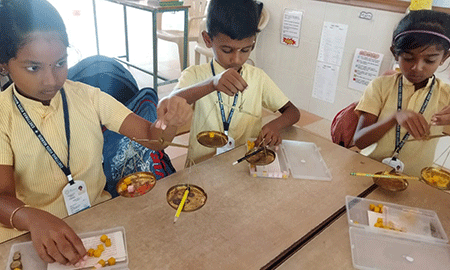
Project Based Experiential Learning
Project-based learning is an integrated learning approach at CVM. Students acquire deeper knowledge through active exploration of the real world challenges. It involves working for extended periods, at times in collaborative groups, to research, experience and present on the process involved and the conclusion. It results in deeper learning, greater engagement and higher quality of work. Students develop critical thinking, collaboration, creativity leading to deeper conceptual knowledge.
Some examples of student projects:
| Grade 6 | Conductors and non conductors |
| Grade 7 | Water audit in science – aerators – at home and school |
Grade 8 |
Bio and non-bio degradable waste Project on Moon Properties of synthetic fibre-tensile strength, Water absorption capacity and action on heat – Clinometer in maths |
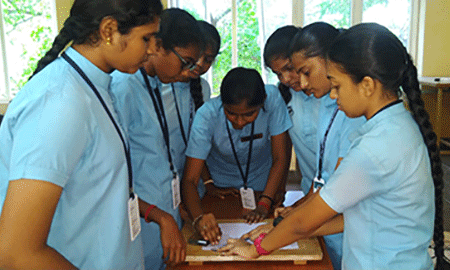
Collaborative Learning
Teaching-learning happens through collaborative and cooperative processes.
Children work in pairs and groups learn to explore the topic together, learn and motivate each other. Research establishes that peer learning is among the most effective form of learning for children.
Some of our activities
- Think pair share for learning the props of Solids, liquids and gases
- Discussion carousel- uses of water, sources, reasons for scarcity
- Poster creation on themes
- Designing Advertisements
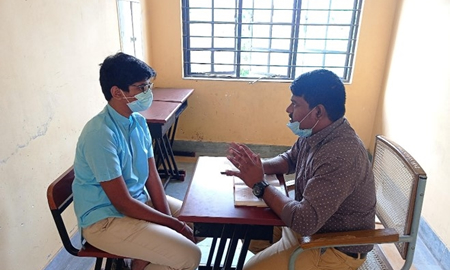
Academic Mentoring
Academic mentoring supports individual students to maximize their potential. Through the school years, students are also guided to reflect, set personal goals and are empowered to achieve them. During primary years, an academic and social profile of children helps teachers to ascertain their strengths and needs, and support them.
Academic counselling and career guidance in provided in secondary and senior secondary, to help students to identify their interests, strengths and needs. The career guidance program offers online guidance and career mapping, webinars, automated career planning tools and tracker, and curated career information and database.
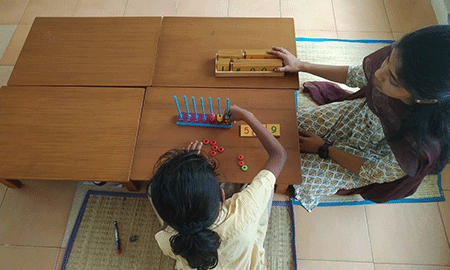
Office Hours and Support Hours
Academic support continues from in-class guidance to one-to-one guidance sessions, as Office Hours and Support Hours. Office Hours is the time for children to meet the teacher to discuss the academic progress, behavioural issues and for teachers to mentor them.
Support Hours are offered to provide individual subject-related support to the children. These optional support hours can be initiated by the children or the teacher. The gap analysis in subjects and a planned discussion by the teacher.
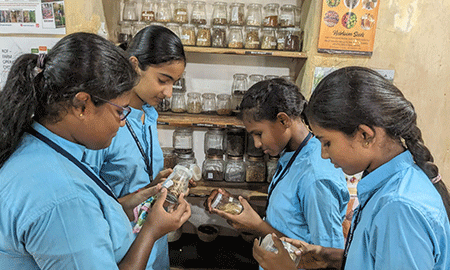
Field trips and outbound trips
Field trips and outbound trips are planned to provide students with real-life and authentic experiences. These trips help widen the horizons of knowledge and broaden the scope of learning beyond the classroom. Field trips focus on specific and planned objectives through observation, experiential learning and reflection. Team-building activities like trekking and camping are integral parts of the outbound trips.
